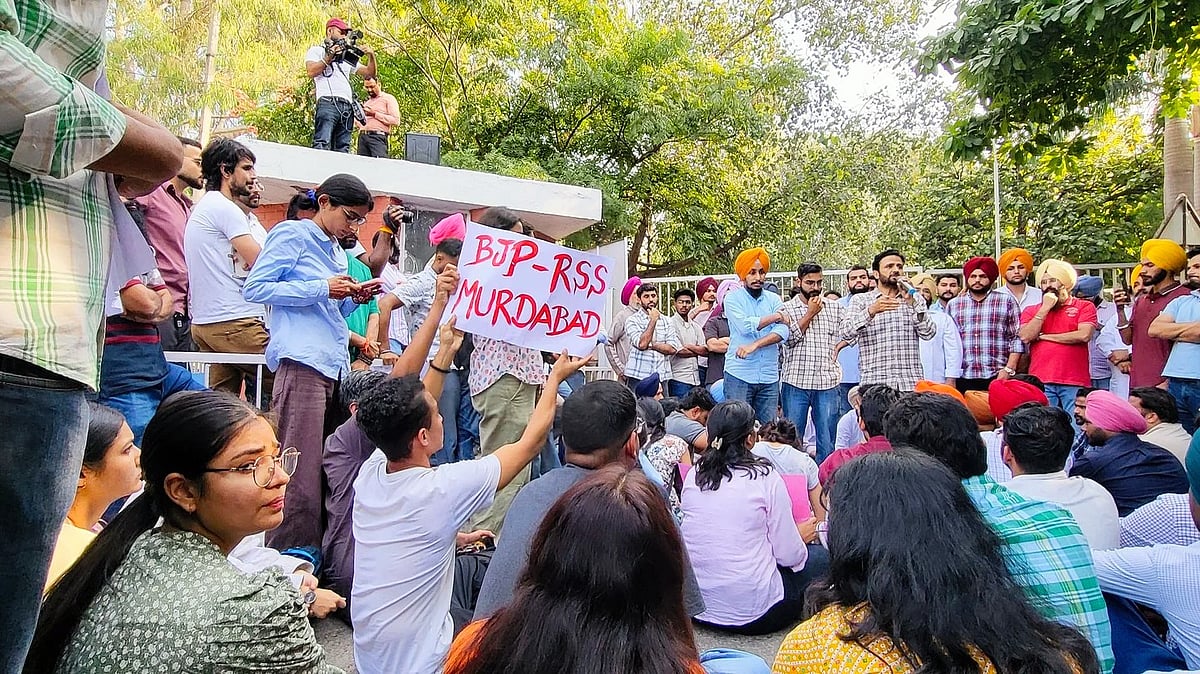POLITICS
Historic Panjab University faces ideological and administrative takeover
Across Punjab, people are seeing an attempt to steer Panjab University in the same direction as JNU

The Central government appears to be moving decisively to tighten its control over Panjab University in Chandigarh. On 1 November — celebrated as Punjab Day — the Centre issued a notification announcing sweeping changes to the university’s governing structure. The most consequential of these changes is that while earlier, most members of the university’s key decision-making bodies were elected, the majority will now be nominated by the government.
In academic and intellectual circles across Punjab, this move is being seen as an attempt to steer Panjab University in the same direction as Delhi’s Jawaharlal Nehru University — an institution that has witnessed an ideological transformation under recent Central interventions.
Panjab University, one of India’s oldest and most respected universities, has long enjoyed a reputation for academic excellence and a proud tradition of intellectual freedom. Many scholars fear that these changes could pave the way for the university’s ideological alignment with the Rashtriya Swayamsevak Sangh (RSS) worldview.
One of Panjab University’s distinctive features has been its unique governance model — a structure unlike that of any other university in the country. This framework, which allowed multiple stakeholders to have a say in policy-making, has been the cornerstone of its autonomy. It ensured that no government, political party, or ideology could impose its will on the university’s functioning. Now, that autonomy appears to be under direct threat.
Until now, the university’s highest policy-making body was the 90-member senate. Its composition reflected a broad and democratic base: 15 members were elected from the graduate constituency, representing alumni; eight were principals of affiliated colleges, elected by their peers; another eight were elected professors from the university’s departments.
Published: undefined
Representatives from each of the six faculties were also elected, along with those from technical education. The senate also included ex-officio members such as two MLAs, the chief minister of Punjab, and the chief justice of the Punjab and Haryana High Court. The senate’s decisions were implemented by the syndicate — an executive body formed by elected members of the senate — and both bodies served a four-year term.
The new notification, however, alters this system beyond recognition. The proposed senate will now have only 30 members, of whom a mere eight will be elected; the rest will be nominated. The graduate constituency, which gave alumni a voice in the university’s affairs, has been abolished altogether.
The syndicate’s composition, too, has been rewritten. It will now be headed by the Union secretary for higher education — a government official who will not even be a member of the senate. This effectively places the university’s executive authority under direct bureaucratic control.
Panjab University occupies a special position in India’s higher education system as a quasi-Central university. The Central government funds 60 per cent of its budget, while the remaining 40 per cent is borne by the Punjab government. The vice-president of India serves as its chancellor.
The debate over its status is not new: in 2007, then Punjab chief minister Parkash Singh Badal wrote to the Central government, stating that the state could no longer afford its financial share and requesting that the university be made a fully Central institution.
Published: undefined
The Manmohan Singh-led UPA government at the time showed little enthusiasm for the proposal, and following widespread outrage in Punjab, Badal was compelled to withdraw his request.
Now, nearly two decades later, fears of Central domination over Panjab University have resurfaced with new intensity. Ever since the notification was issued, protests and demonstrations have erupted across Punjab, with student unions, academics, and civil society groups taking to the streets. The recurring sentiment in these protests is that Punjab, which was denied its rightful capital after reorganisation, is now being stripped even of the university that bears its name and legacy.
Congress MP Manish Tewari, who represents Chandigarh, has called the Centre’s move “completely unconstitutional”. He argues that both the senate and syndicate are institutions established under the Panjab University Act, 1947 — a law passed by the Punjab Legislative Assembly — and that no executive notification by the Union government can override or amend a statute enacted by a state legislature.
Given the legal implications, it is almost certain that this notification will be challenged in court. However, even as the matter moves toward judicial scrutiny, the damage to the institution’s autonomy and morale may already have begun.
Unless the courts intervene swiftly, one of India’s most distinguished universities — a symbol of Punjab’s intellectual and cultural identity — may find itself reduced to yet another Centrally controlled institution, its reputation slowly eroded by the loss of independence that once made it exceptional.
Published: undefined
Follow us on: Facebook, Twitter, Google News, Instagram
Join our official telegram channel (@nationalherald) and stay updated with the latest headlines
Published: undefined